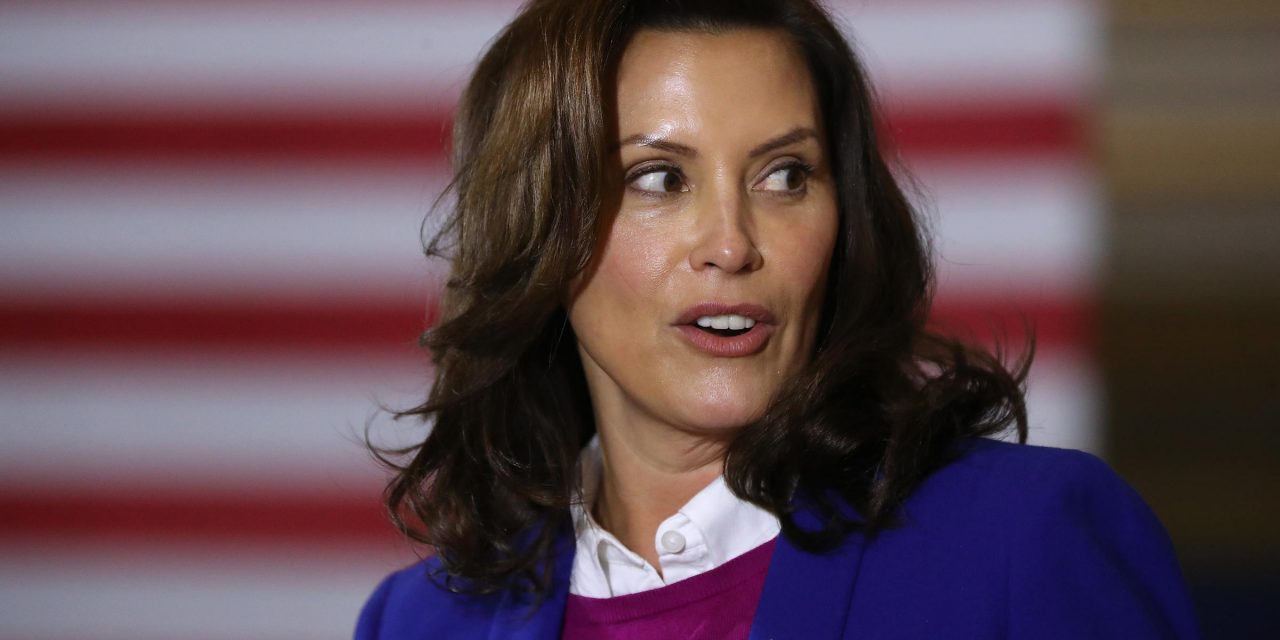As Michigan Gov. Gretchen Whitmer faces death threats, a petition drive to recall her from office, and a fledgling effort in the Legislature to impeach her, a new study shows that Whitmer’s anti-virus restrictions rank Michigan as 30th among all states.
Data from the University of Oxford in England, which has tracked government responses to Coronavirus-19 across the globe, indicates that the strictness of Michigan’s executive orders rank behind Red states where governors’ rhetoric has mostly downplayed the impact of the pandemic, such as Texas, Florida, West Virginia, Louisiana and Kentucky.
The Oxford Covid-19 Government Response Tracker,, which rates states with a 0-100 score based on their actions since March related to factors such as stay-at-home orders, mask mandates and business restrictions on bars and restaurants, shows that the states with the most relaxed approach have recently suffered with the highest rates of covid cases, hospitalizations and deaths on a per-capita basis.
South Dakota, Iowa and North Dakota, where the virus is spreading exponentially, have exercised the most lenient long-term policies while New Mexico, New York and Rhode Island have been the most rigid.
Lenient policies equal frightening coronavirus deaths
The Oxford study demonstrates that Whitmer has allowed extended reprieves on her executive orders twice while many states have stuck to strict limits for most of the past nine months.
As Oxford researchers did not single out Whitmer or Michigan, a New York Times analysis of the data produced a detailed ranking of the 50 states.
The worst outbreaks in the country now are in places where policymakers did the least to prevent transmission. States with stronger policy responses over the long run are seeing comparatively smaller outbreaks.
While conservative Republicans and right-wing groups in Michigan have called Whitmer a dictator, a Hitler or a left-wing radical, the Oxford Index shows that the Democratic governor is far from the nation’s most rigorous state executive in her approach to public safety amid the ongoing covid outbreak.
But she may be the most publicly demonized governor in the nation while the spread of the virus has killed more than a quarter-million Americans.
Beyond the anti-Whitmer demonstrations at the state Capitol by armed gunman and the plot by militiamen to kidnap and supposedly execute the governor, President Trump has made her a national target by calling for Michiganders to “liberate” their state from tyrannical Whitmer dictates.
In response to Whitmer’s latest 3-week crackdown, which was implemented on Wednesday to halt the spread of covid, Trump’s top coronavirus adviser, Scott Atlas, who has no expertise in virus outbreaks, tweeted that the public in Michigan should “rise up” against the new Michigan rules.
State now ranks sixth in coronavirus cases
In contrast, leading public health experts have praised those Whitmer constraints as a model for the nation as we head into the Thanksgiving and Christmas holidays.
“Every state should be following Michigan’s lead right now,” said Ashish Jha, dean of the Brown University School of Public Health on Monday.
“Michigan is really doing what is absolutely essential. It’s amazing to me that other states are not following. I expect this week we are going to see a lot of other states step up and essentially put in very similar policies because we’re so behind the eight ball that we have got to get going.”
As of Wednesday, Michigan restaurants and bars must close their dining rooms again, high schools and colleges must cease in-person instruction, and indoor gatherings will be limited to a maximum of two households or 10 people through Dec. 8.
Those gubernatorial actions were taken as Michigan has experienced shocking outbreaks in covid casualties: the state suddenly ranks sixth in the nation in coronavirus cases and fifth in deaths, according to the state Department of Health and Human Services. Most counties across the state are now dealing with positive virus test rates of 10 to 20 percent. Covid death rates have increased nearly 120 percent over the past two weeks.
The bottom line is expressed by The New York Times as they cite Thomas Hale, associate professor of global public policy at Oxford’s Blavatnik School of Government, who leads the covid tracking effort:
A relationship between policies and the outbreak’s severity (in the U.S.) has become more clear as the pandemic has progressed.
“States that have kept more control policies in a more consistent way — New England states, for example — have avoided a summer surge and are now having a smaller fall surge, as opposed to states that rolled them back very quickly like Florida or Texas,” Mr. Hale said. “I think timing really matters for the decisions.”





